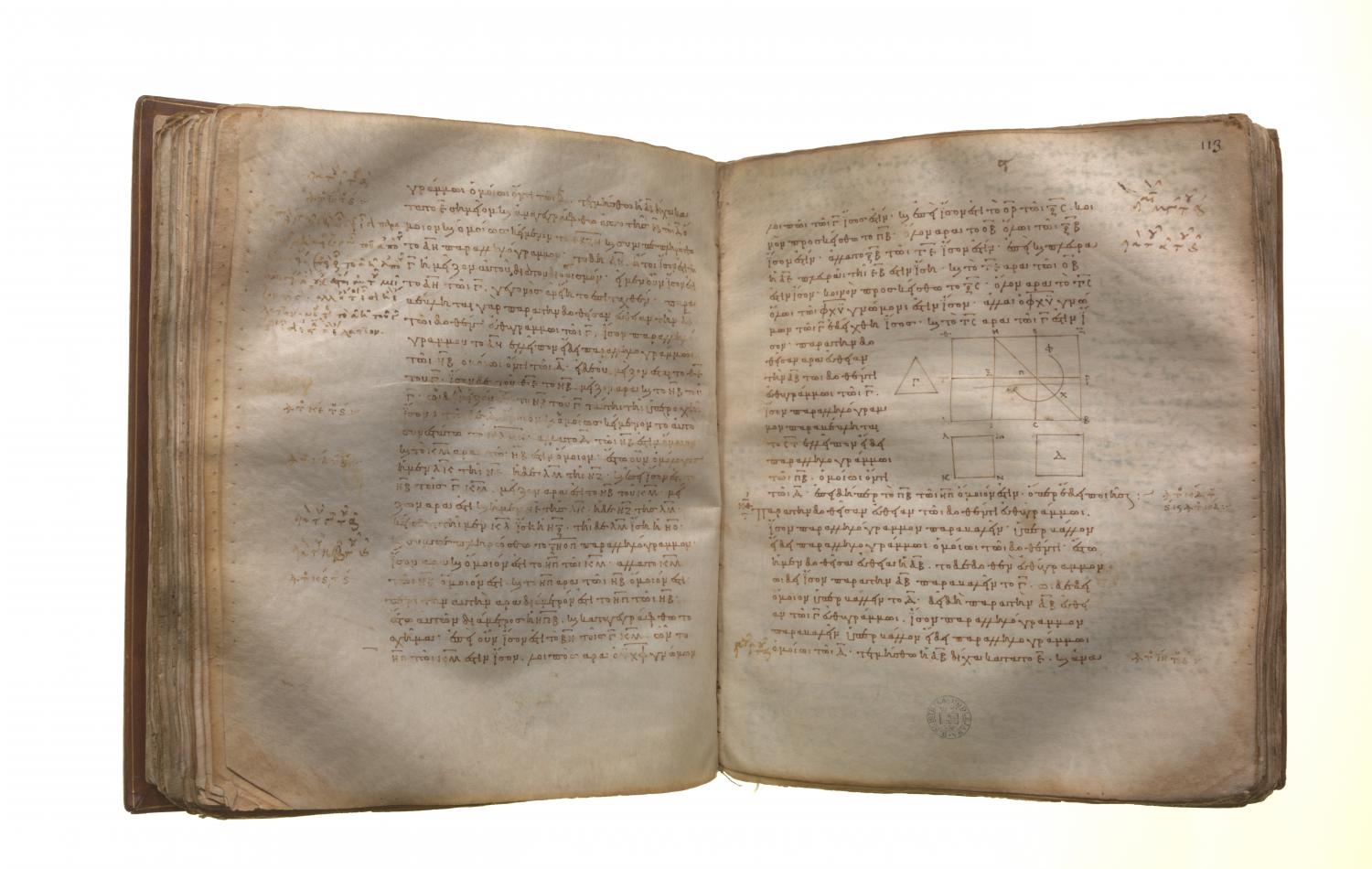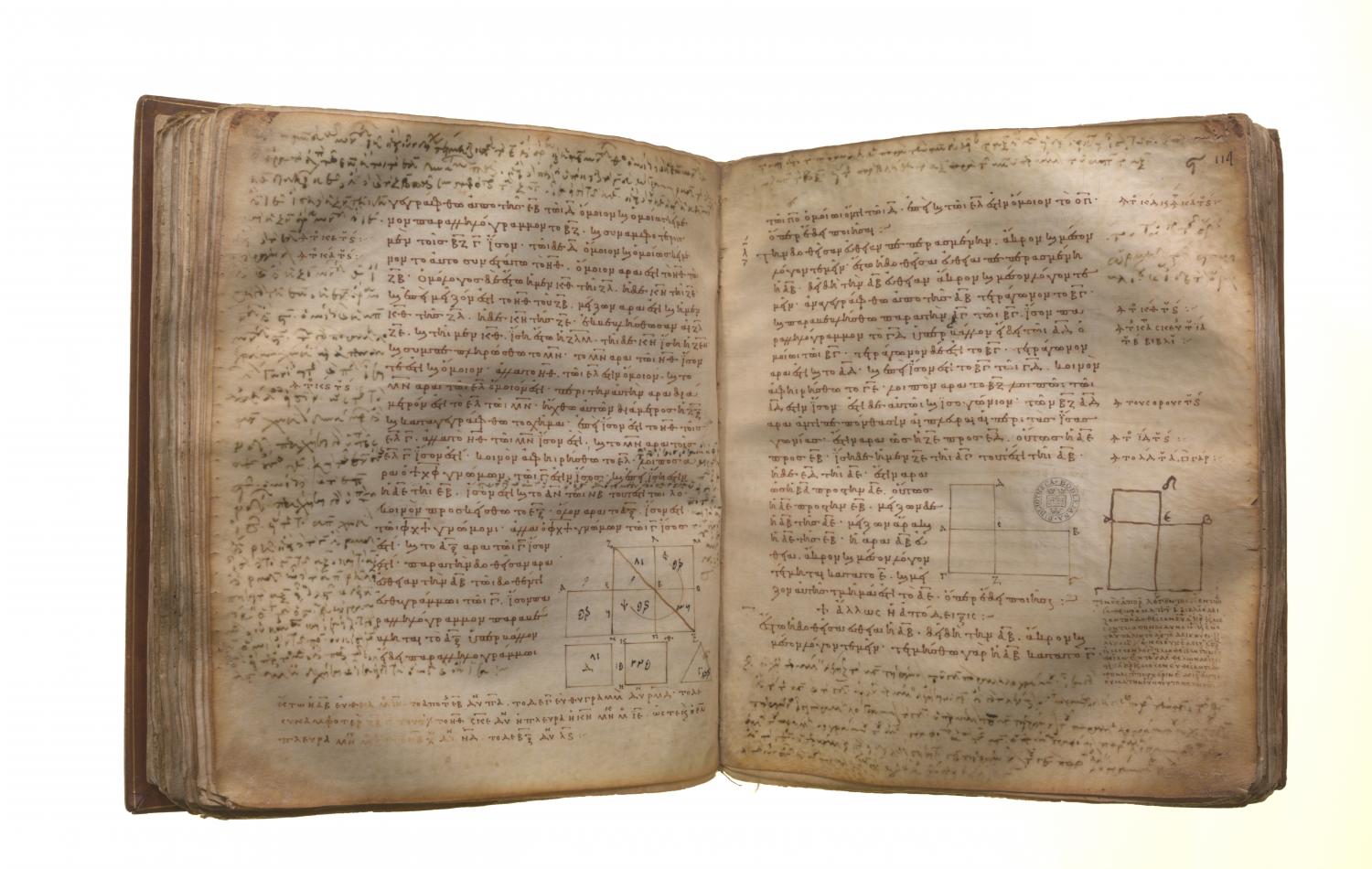Similar figures and proportions: Book 6 Proposition 29
Translations
To a given straight line to apply a parallelogram equal to a given rectilineal figure and exceeding by a parallelogrammic figure similar to a given one. Let AB be the given straight line, C the given rectilineal figure to which the figure to be applied to AB is required to be equal, and D that to which the excess is required to be similar; thus it is required to apply to the straight line AB a parallelogram equal to the rectilineal figure C and exceeding by a parallelogrammic figure similar to D. Let AB be bisected at E; let there be described on EB the parallelogram BF similar and similarly situated to D; and let GH be constructed at once equal to the sum of BF, C and similar and similarly situated to D. [VI. 25] Let KH correspond to FL and KG to FE. Now, since GH is greater than FB, therefore KH is also greater than FL, and KG than FE. Let FL, FE be produced, let FLM be equal to KH, and FEN to KG, and let MN be completed; therefore MN is both equal and similar to GH. But GH is similar to EL; therefore MN is also similar to EL; [VI. 21] therefore EL is about the same diameter with MN. [VI. 26] Let their diameter FO be drawn, and let the figure be described. Since GH is equal to EL, C, while GH is equal to MN, therefore MN is also equal to EL, C. Let EL be subtracted from each; therefore the remainder, the gnomon XWV, is equal to C. Now, since AE is equal to EB, AN is also equal to NB [I. 36], that is, to LP [I. 43]. Let EO be added to each; therefore the whole AO is equal to the gnomon VWX. But the gnomon VWX is equal to C; therefore AO is also equal to C.

